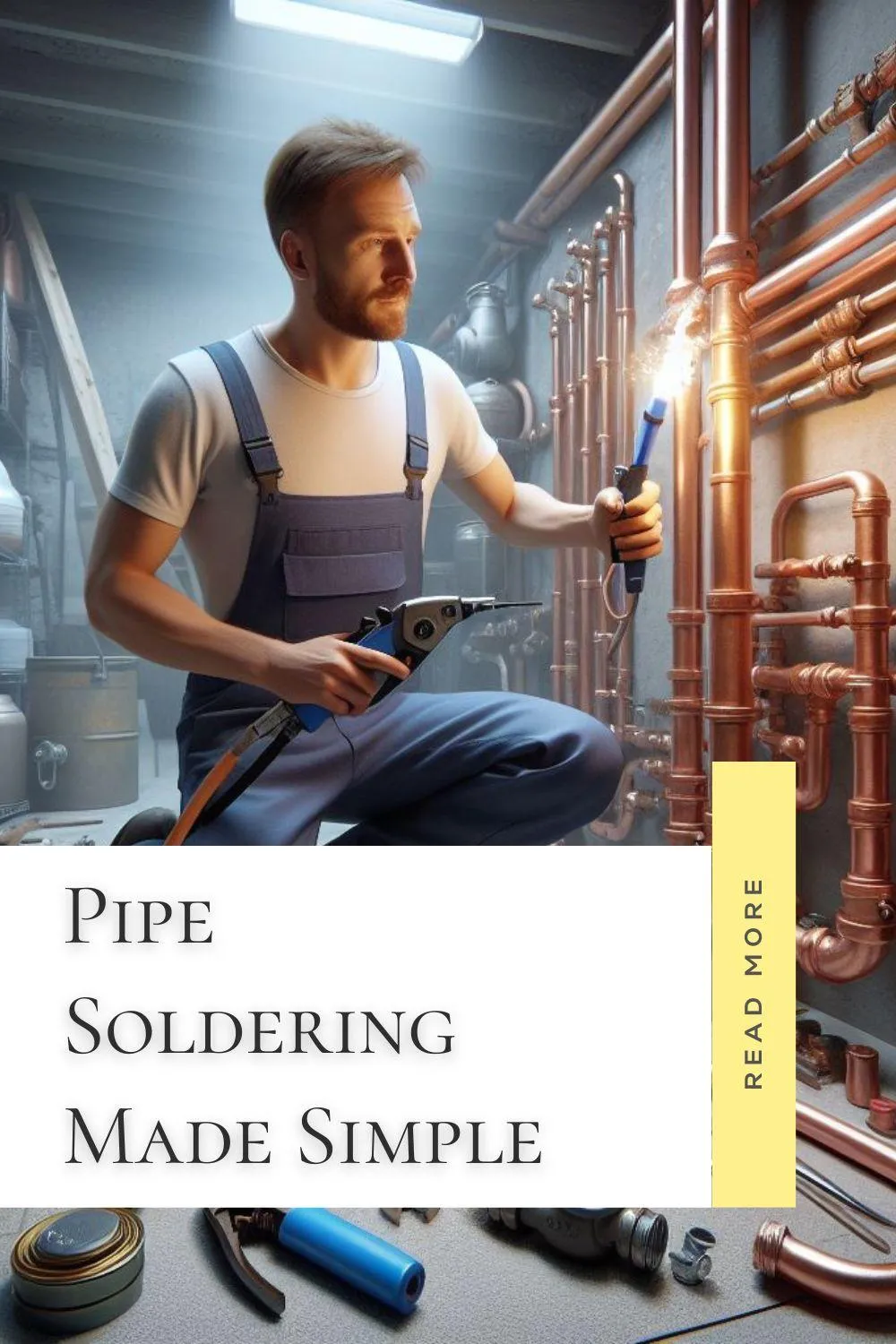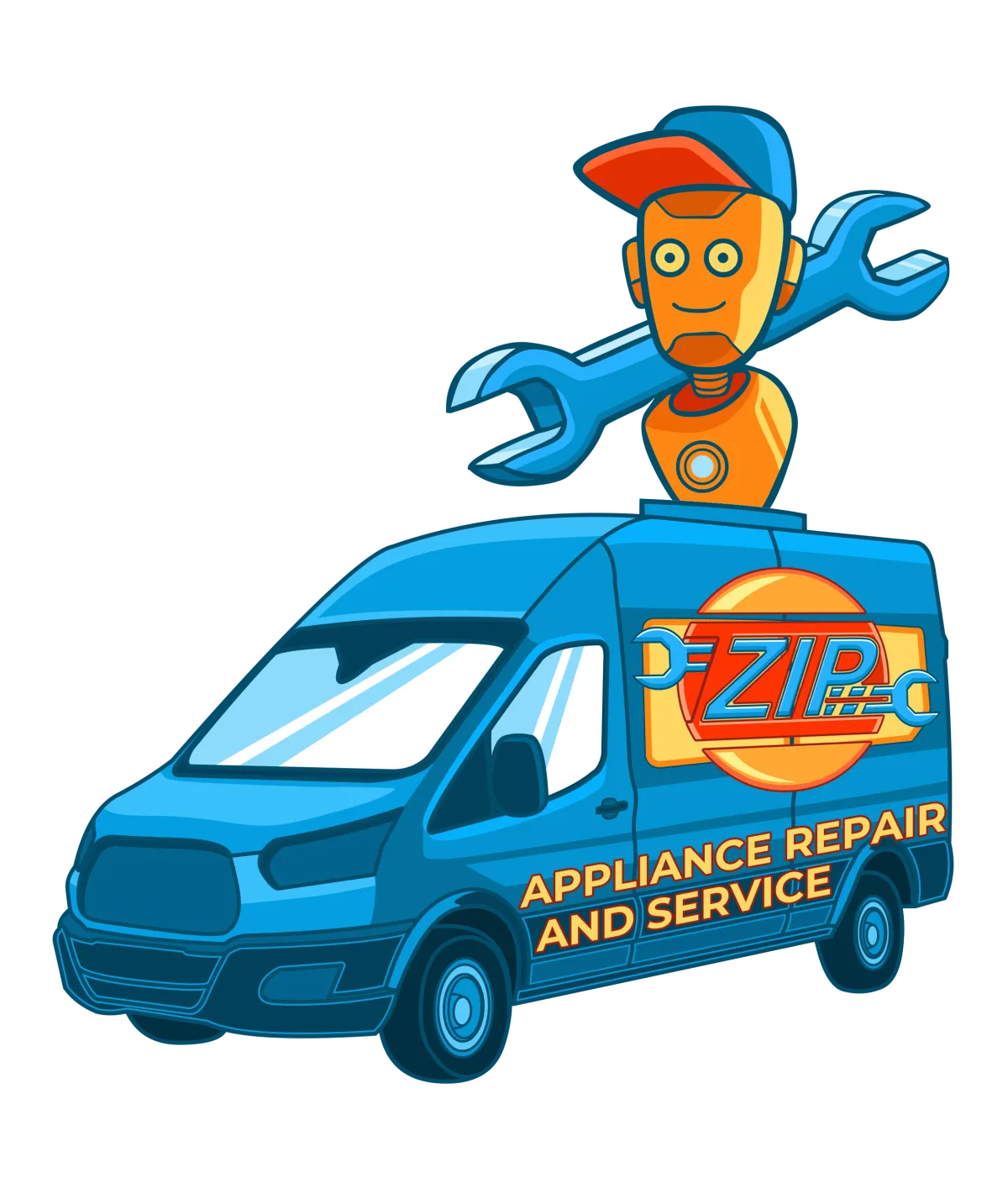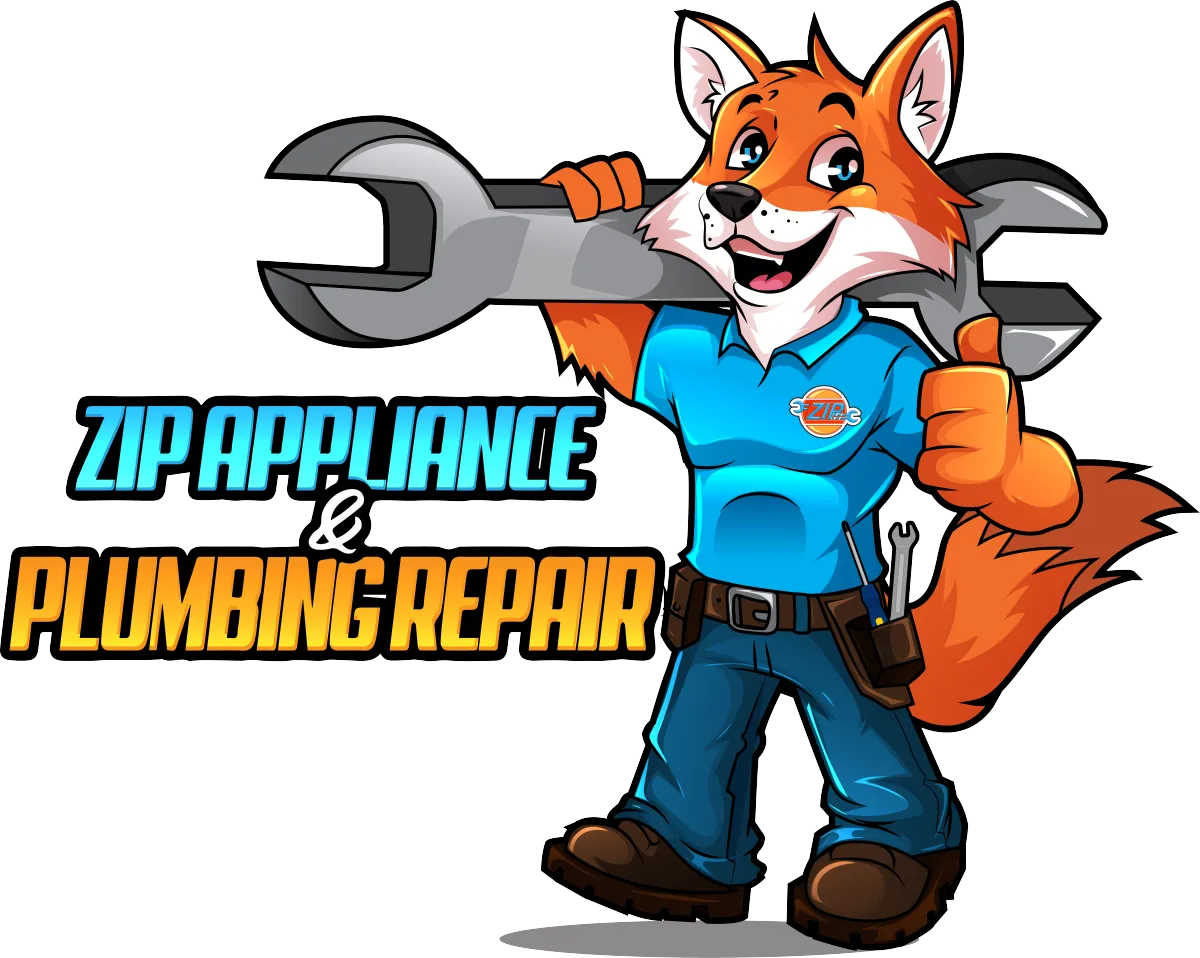Phone: (559) 272-4265
Appliance Repair Tips For Bakersfield, CA Residents

Master Soldering: Pipe Perfection
Pipe Soldering Made Simple
Introduction:
Welcome to the world of soldering, an essential skill for any plumbing enthusiast or professional. Whether you're repairing a leaky pipe or installing new plumbing fixtures, mastering soldering techniques is crucial for ensuring long-lasting and leak-free connections. At Zip Appliance and Plumbing Repair in Bakersfield, California, we understand the importance of impeccable soldering work in plumbing projects, which is why we're here to guide you through the process.
Understanding Soldering Basics
Soldering is a fundamental technique used in plumbing to join metal components together. It involves melting a filler material, known as solder, to create a bond between the pipes. To solder pipes effectively, you'll need a few key tools and materials:
Soldering Iron: This handheld tool is the primary instrument used to heat the solder and create a bond between the pipes. It comes in various sizes and wattages, depending on the project's requirements.
Flux: Flux is a chemical compound applied to the metal surfaces before soldering. It helps clean the surfaces, prevent oxidation, and promote solder adhesion, ensuring a strong and durable joint.
Solder Wire: Solder wire is a combination of tin and lead (or other alloys) that melts at a lower temperature than the pipes being joined. It flows into the joint and solidifies to create a secure connection.
Cleaning Materials: Abrasive materials such as emery cloth or sandpaper are used to clean the surfaces of the pipes before soldering. This ensures proper adhesion and prevents contaminants from interfering with the soldering process.

Preparing Your Workspace
Before you begin soldering, it's essential to set up a safe and organized work area. At Zip Appliance and Plumbing Repair, safety is our top priority. Here's how to prepare your workspace:
Set up a Safe Work Area: Choose a well-ventilated space away from flammable materials. Clear the area of clutter and ensure adequate lighting to work comfortably.
Gather Necessary Safety Equipment: Wear safety goggles to protect your eyes from sparks and splashes, heat-resistant gloves to prevent burns, and keep a fire extinguisher nearby in case of emergencies.
Prepping the Pipes
Proper preparation of the pipes is crucial for a successful soldering job. Follow these steps to prepare the pipes:
Cleaning the Pipes: Use emery cloth or sandpaper to remove any dirt, corrosion, or old solder from the pipe surfaces. This ensures a clean and smooth surface for solder adhesion.
Applying Flux to the Joints: Apply flux to the cleaned pipe joints using a flux brush or applicator. Flux helps remove oxidation and contaminants, allowing the solder to flow smoothly and form a strong bond.
Fitting the Pipes Together Properly: Ensure that the pipes fit together snugly without any gaps or misalignments. Proper fitting ensures a tight seal and prevents leaks once the soldering is complete.
Mastering Soldering Techniques
Now that your workspace is set up and your pipes are prepped, it's time to master the art of soldering. Follow these tips for success:
Heating the Joint Evenly: Use the soldering iron to heat the joint evenly, moving it around the joint to distribute the heat uniformly. This ensures that the solder melts and flows smoothly, creating a strong and reliable bond.
Applying Solder Effectively: Once the joint is heated, touch the solder wire to the joint's base, allowing it to melt and flow into the gap between the pipes. Move the solder wire around the joint to ensure complete coverage and a secure connection.
Achieving the Perfect Soldering Bead: Aim for a smooth, shiny solder bead that completely surrounds the joint. A properly soldered joint should have a uniform appearance without any gaps or irregularities.
Troubleshooting Common Soldering Issues: If you encounter issues such as cold joints, excess solder, or solder drips, don't panic. Refer to our troubleshooting guide for solutions and tips on how to rectify these issues effectively.
Tips for Success
Practice makes perfect when it comes to soldering. Here are some tips to help you hone your skills:
Practice Regularly: The more you practice soldering, the more confident you'll become in your abilities. Start with simple projects and gradually work your way up to more complex tasks.
Be Patient: Soldering requires patience and precision. Take your time to ensure quality workmanship and avoid mistakes that could compromise the integrity of the joint.
Seek Professional Advice: Don't hesitate to reach out to experienced professionals at Zip Appliance and Plumbing Repair for guidance and support. Our team of experts is always here to answer your questions and provide assistance when needed.
Advanced Soldering Tips
Ready to take your soldering skills to the next level? Consider these advanced tips:
Using a Soldering Torch for Larger Pipes: For larger diameter pipes or more extensive plumbing projects, consider using a soldering torch. A torch provides higher heat output and allows for faster soldering of large joints.
Tinning Your Soldering Iron Tip: Tinning the soldering iron tip involves coating it with a thin layer of solder to improve conductivity and heat transfer. This ensures more efficient soldering and helps prevent oxidation of the tip.
Incorporating Heat Sinks: Heat sinks are devices used to dissipate heat away from sensitive components during soldering. They help prevent overheating and damage to electronic circuits or other heat-sensitive materials.
Safety Precautions
Safety should always be your top priority when soldering. Follow these precautions to prevent accidents and ensure a safe working environment:
Avoid Burns and Injuries: Wear protective gear such as safety goggles and heat-resistant gloves to protect yourself from burns and injuries. Handle hot tools with care and avoid touching heated surfaces.
Ensure Proper Ventilation: Work in a well-ventilated area or use a fume extractor to remove harmful fumes and gases generated during soldering. Avoid inhaling solder flux or other chemical vapors that may be present.
Handle Soldering Equipment Safely: Always handle soldering equipment with care and follow manufacturer's instructions for proper use and maintenance. Never leave a hot soldering iron unattended, and always unplug it when not in use to prevent accidents.
Maintaining Your Soldering Equipment
To prolong the life of your soldering equipment and ensure optimal performance, follow these maintenance tips:
Clean and Store Your Soldering Iron Properly: After each use, clean the soldering iron tip with a damp sponge or cloth to remove any solder residue or oxidation. Store the soldering iron in a dry, safe place to prevent corrosion and damage.
Replace Worn-Out Parts: Regularly inspect your soldering equipment for signs of wear and tear, such as frayed cords or damaged tips. Replace worn-out parts as needed to ensure safe and reliable operation.
Invest in Quality Tools: Choose high-quality soldering equipment from trusted brands like Zip Appliance and Plumbing Repair for reliable performance and durability. Quality tools are essential for achieving professional results and minimizing the risk of accidents or equipment failure.
Project Showcase: Putting Your Skills to Use
Ready to put your soldering skills to the test? Here are some DIY projects you can try at home:
DIY Projects for Practicing Soldering Techniques: From repairing leaky pipes to installing new plumbing fixtures, there are plenty of opportunities to practice your soldering skills on real-world projects. Start with simple tasks and gradually work your way up to more complex jobs.
Before and After Photos: Document your soldering projects with before and after photos to track your progress and showcase your workmanship. Share your success stories with friends and family or post them on social media to inspire others.
Testimonials from Satisfied DIYers: Hear from fellow DIY enthusiasts who have successfully tackled plumbing projects with the help of Zip Appliance and Plumbing Repair. Read their testimonials and learn from their experiences to gain valuable insights and tips for your own projects.
Conclusion
Congratulations on completing our comprehensive guide to mastering soldering for pipe work. With the knowledge and techniques outlined in this article, you're well-equipped to tackle plumbing projects with confidence and skill. Remember, practice makes perfect, so don't hesitate to put your newfound soldering skills to the test.
At Zip Appliance Repair and Service, we're committed to providing top-notch repair and service solutions for all your plumbing needs. Visit our website at www.ziprepairservice.com to learn more about our services and offerings. Have a plumbing issue that needs immediate attention? Don't hesitate to reach out to us at (661) 387-2282. Our team of experts is standing by to assist you.
With dedication and perseverance, you'll soon become a master solderer, capable of achieving pipe perfection in all your plumbing projects. Thank you for choosing Zip Appliance Repair and Service as your trusted partner in plumbing repair and service. Happy soldering!

Master Soldering: Pipe Perfection
Pipe Soldering Made Simple
Introduction:
Welcome to the world of soldering, an essential skill for any plumbing enthusiast or professional. Whether you're repairing a leaky pipe or installing new plumbing fixtures, mastering soldering techniques is crucial for ensuring long-lasting and leak-free connections. At Zip Appliance and Plumbing Repair in Bakersfield, California, we understand the importance of impeccable soldering work in plumbing projects, which is why we're here to guide you through the process.
Understanding Soldering Basics
Soldering is a fundamental technique used in plumbing to join metal components together. It involves melting a filler material, known as solder, to create a bond between the pipes. To solder pipes effectively, you'll need a few key tools and materials:
Soldering Iron: This handheld tool is the primary instrument used to heat the solder and create a bond between the pipes. It comes in various sizes and wattages, depending on the project's requirements.
Flux: Flux is a chemical compound applied to the metal surfaces before soldering. It helps clean the surfaces, prevent oxidation, and promote solder adhesion, ensuring a strong and durable joint.
Solder Wire: Solder wire is a combination of tin and lead (or other alloys) that melts at a lower temperature than the pipes being joined. It flows into the joint and solidifies to create a secure connection.
Cleaning Materials: Abrasive materials such as emery cloth or sandpaper are used to clean the surfaces of the pipes before soldering. This ensures proper adhesion and prevents contaminants from interfering with the soldering process.

Preparing Your Workspace
Before you begin soldering, it's essential to set up a safe and organized work area. At Zip Appliance and Plumbing Repair, safety is our top priority. Here's how to prepare your workspace:
Set up a Safe Work Area: Choose a well-ventilated space away from flammable materials. Clear the area of clutter and ensure adequate lighting to work comfortably.
Gather Necessary Safety Equipment: Wear safety goggles to protect your eyes from sparks and splashes, heat-resistant gloves to prevent burns, and keep a fire extinguisher nearby in case of emergencies.
Prepping the Pipes
Proper preparation of the pipes is crucial for a successful soldering job. Follow these steps to prepare the pipes:
Cleaning the Pipes: Use emery cloth or sandpaper to remove any dirt, corrosion, or old solder from the pipe surfaces. This ensures a clean and smooth surface for solder adhesion.
Applying Flux to the Joints: Apply flux to the cleaned pipe joints using a flux brush or applicator. Flux helps remove oxidation and contaminants, allowing the solder to flow smoothly and form a strong bond.
Fitting the Pipes Together Properly: Ensure that the pipes fit together snugly without any gaps or misalignments. Proper fitting ensures a tight seal and prevents leaks once the soldering is complete.
Mastering Soldering Techniques
Now that your workspace is set up and your pipes are prepped, it's time to master the art of soldering. Follow these tips for success:
Heating the Joint Evenly: Use the soldering iron to heat the joint evenly, moving it around the joint to distribute the heat uniformly. This ensures that the solder melts and flows smoothly, creating a strong and reliable bond.
Applying Solder Effectively: Once the joint is heated, touch the solder wire to the joint's base, allowing it to melt and flow into the gap between the pipes. Move the solder wire around the joint to ensure complete coverage and a secure connection.
Achieving the Perfect Soldering Bead: Aim for a smooth, shiny solder bead that completely surrounds the joint. A properly soldered joint should have a uniform appearance without any gaps or irregularities.
Troubleshooting Common Soldering Issues: If you encounter issues such as cold joints, excess solder, or solder drips, don't panic. Refer to our troubleshooting guide for solutions and tips on how to rectify these issues effectively.
Tips for Success
Practice makes perfect when it comes to soldering. Here are some tips to help you hone your skills:
Practice Regularly: The more you practice soldering, the more confident you'll become in your abilities. Start with simple projects and gradually work your way up to more complex tasks.
Be Patient: Soldering requires patience and precision. Take your time to ensure quality workmanship and avoid mistakes that could compromise the integrity of the joint.
Seek Professional Advice: Don't hesitate to reach out to experienced professionals at Zip Appliance and Plumbing Repair for guidance and support. Our team of experts is always here to answer your questions and provide assistance when needed.
Advanced Soldering Tips
Ready to take your soldering skills to the next level? Consider these advanced tips:
Using a Soldering Torch for Larger Pipes: For larger diameter pipes or more extensive plumbing projects, consider using a soldering torch. A torch provides higher heat output and allows for faster soldering of large joints.
Tinning Your Soldering Iron Tip: Tinning the soldering iron tip involves coating it with a thin layer of solder to improve conductivity and heat transfer. This ensures more efficient soldering and helps prevent oxidation of the tip.
Incorporating Heat Sinks: Heat sinks are devices used to dissipate heat away from sensitive components during soldering. They help prevent overheating and damage to electronic circuits or other heat-sensitive materials.
Safety Precautions
Safety should always be your top priority when soldering. Follow these precautions to prevent accidents and ensure a safe working environment:
Avoid Burns and Injuries: Wear protective gear such as safety goggles and heat-resistant gloves to protect yourself from burns and injuries. Handle hot tools with care and avoid touching heated surfaces.
Ensure Proper Ventilation: Work in a well-ventilated area or use a fume extractor to remove harmful fumes and gases generated during soldering. Avoid inhaling solder flux or other chemical vapors that may be present.
Handle Soldering Equipment Safely: Always handle soldering equipment with care and follow manufacturer's instructions for proper use and maintenance. Never leave a hot soldering iron unattended, and always unplug it when not in use to prevent accidents.
Maintaining Your Soldering Equipment
To prolong the life of your soldering equipment and ensure optimal performance, follow these maintenance tips:
Clean and Store Your Soldering Iron Properly: After each use, clean the soldering iron tip with a damp sponge or cloth to remove any solder residue or oxidation. Store the soldering iron in a dry, safe place to prevent corrosion and damage.
Replace Worn-Out Parts: Regularly inspect your soldering equipment for signs of wear and tear, such as frayed cords or damaged tips. Replace worn-out parts as needed to ensure safe and reliable operation.
Invest in Quality Tools: Choose high-quality soldering equipment from trusted brands like Zip Appliance and Plumbing Repair for reliable performance and durability. Quality tools are essential for achieving professional results and minimizing the risk of accidents or equipment failure.
Project Showcase: Putting Your Skills to Use
Ready to put your soldering skills to the test? Here are some DIY projects you can try at home:
DIY Projects for Practicing Soldering Techniques: From repairing leaky pipes to installing new plumbing fixtures, there are plenty of opportunities to practice your soldering skills on real-world projects. Start with simple tasks and gradually work your way up to more complex jobs.
Before and After Photos: Document your soldering projects with before and after photos to track your progress and showcase your workmanship. Share your success stories with friends and family or post them on social media to inspire others.
Testimonials from Satisfied DIYers: Hear from fellow DIY enthusiasts who have successfully tackled plumbing projects with the help of Zip Appliance and Plumbing Repair. Read their testimonials and learn from their experiences to gain valuable insights and tips for your own projects.
Conclusion
Congratulations on completing our comprehensive guide to mastering soldering for pipe work. With the knowledge and techniques outlined in this article, you're well-equipped to tackle plumbing projects with confidence and skill. Remember, practice makes perfect, so don't hesitate to put your newfound soldering skills to the test.
At Zip Appliance Repair and Service, we're committed to providing top-notch repair and service solutions for all your plumbing needs. Visit our website at www.ziprepairservice.com to learn more about our services and offerings. Have a plumbing issue that needs immediate attention? Don't hesitate to reach out to us at (661) 387-2282. Our team of experts is standing by to assist you.
With dedication and perseverance, you'll soon become a master solderer, capable of achieving pipe perfection in all your plumbing projects. Thank you for choosing Zip Appliance Repair and Service as your trusted partner in plumbing repair and service. Happy soldering!
If your dryer has been giving you problems, contact Zip Appliance Repair & Service at (661) 387-2282

Appliance Repair In A Zip
If you need a dryer repair call our Team at (661) 387-2282, or visit our online scheduling page to request service.
Appliance Repair
Plumbing Repair Services
HAVE A QUESTION, CALL (661) 387-2282

Online Offers
Take advantage of our online discount offers - save time and money...

Residential & Commercial appliances
See what our company can do for you

Appliance Repair Tips
If your appliance is not working properly...

1405 Commercial Way ste 100
Bakersfield, CA 93309
Lic # 1116346
Equipment We Sevice
- A Call To Confirm Your Appointment Time
- A Email Detailing Your Assigned Technician
- Information Needed Before The Repair Can Be Started
- An Estimate Of Work To Be Done
© 2024 ZIP APPLIANCE REPAIR & SERVICE LLC








